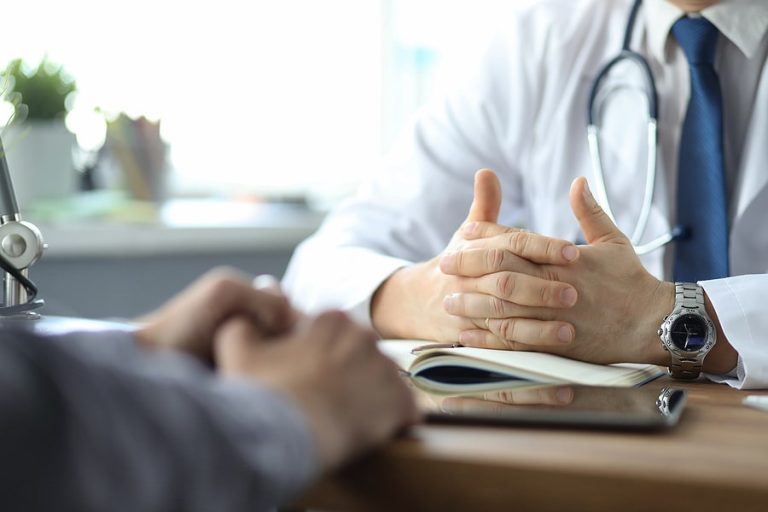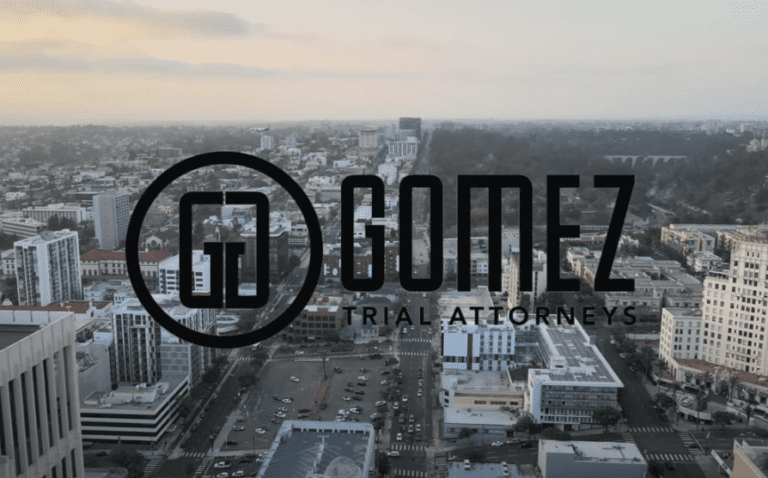If you or a loved one have ever experienced a car accident, then you know how terrifying and confusing that experience can be. The shock and fear that pervade any accident scene are enough to make anyone’s head spin—but what about the time after a car accident? All too often, we forget that accident victims must forge a path to healing before they can return to their normal lives. Many car accidents result in physical or mental conditions that can take months, if not years, to fully recover from; in some cases, victims of a car accident may not ever fully recover.
Some physical experiences and sensations are more common after car accidents than others. It’s an important time to pay attention to your body; even the smallest symptom could be pointing to a severe medical issue. Perhaps the most difficult aspect of this watchdog-phase is balancing a cautious eye with a good attitude. Once we become too stressed or fearful, it can begin to impact us negatively on both a mental and physical level.
There’s no need to panic to the extent that you make your symptoms worse, but it is important to monitor your health and seek medical attention if you believe it’s necessary. One of the best ways to ensure that you and those around you can keep you safe is to keep a log of your symptoms. This way, overt changes become obvious immediately. More importantly, this log can be a useful resource for caregivers, whether discussing symptoms with an attending physician or evaluating a claim for damages with a car accident attorney.
Regardless of how you choose to structure your approach to healing, every car accident victim should know what to expect physically after a car accident. We’ve compiled some helpful information to help guide your decision-making processes and pursuit of recovery after a crash, and help get you started on the right path following a car accident.
What Injuries Commonly Arise From Car Accidents?
Three million Americans experience a car accident every year. Two million of those suffer permanent or severe injuries as a result. Even injuries that are impermanent can have a lasting effect on the way we live our lives—and it’s one reason why it’s so important to understand what injuries to expect following a crash.
Many drivers wonder how they can increase their safety and prevent common car accident injuries. Outside of safe defensive driving practices, proper seat belt use, and a well-maintained vehicle, there’s little we can do to control what occurs due to others’ negligence on the road. You likely can’t directly avoid any specific injury during an accident, but knowing what could happen can better prepare you to respond.
- Whiplash | Whiplash serves as an umbrella term. There is not one single injury that constitutes whiplash. Instead, the word actually refers to a broad range of ligament, muscle, and tendon injuries that can happen in your upper back and neck during a car accident. Whiplash tends to occur when our bodies move suddenly due to sharp jolts or stops during an accident. Whiplash does not involve broken bones, but can take quite some time to heal
- Head and traumatic brain injuries | Head injuries can literally alter the course of an accident victim’s life. Some of them are treatable, some are easy to spot, and some may fail to present themselves for days after a crash. Head and brain injuries are especially nefarious due to their relatively covert nature. Once you recognize that one of the most common symptoms is a headache, it’s easy to see how these injuries go overlooked or ignored. Diagnosing these injuries is often a difficult process- a doctor will likely need to perform scans to achieve certainty
- Broken bones | This should come as no surprise. Car accident victims may suffer broken bones in any number of ways. The breaks may range from minute hairline fractures (which can still be incredibly painful) to full-blown compound fractures that involve completely broken bones and skin
- Internal bleeding | Much like head injuries and TBI, internal bleeding may take quite some time to present itself. The easiest identifiable symptom is deep bruising and swelling around the abdomen, but you may experience other symptoms—like pain—first. Internal bleeding must be treated as soon as possible; the injuries that cause it are often life-threatening
- Cuts and lacerations | One of the factors that make large cuts, especially, so dangerous is their risk for infection. Proper first aid and medical care directly after a car accident can help decrease the likelihood of this. It’s important to speak with your medical care provider for detailed instructions concerning how to keep these injuries sterile and prevent further complications
Delayed Injury Symptoms: What to Watch For
A wide variety of injuries may fail to present themselves until some time after an accident. Some, however, are well known for playing out in this way. It’s totally normal for some car accident victims to feel little to no pain in the time that closely follows their accidents. This is due to how the human body responds to trauma. If it took some time for you to notice pain after your car accident, you’re not alone. No legal or medical professional would allow this to impede their assessment of your injuries (or any other damages). Those who have experienced auto wrecks should beware of four key symptoms that may appear in the hours, days, or weeks following the event.
Headaches
It’s common—and even expected—for car accident victims to experience headaches in the time following a crash. They can be caused by any number of totally benign factors. Some of them may be physical, some may even be psychological, but none indicate imminent risk to health.
Unfortunately, this is not always the case. Headaches can be one of the initial signals of serious injuries. Most instances of traumatic brain injury first present themselves in the form of a headache. A headache could actually signal swelling, bleeding, or bruising in and around the brain.
Abdominal Pain and Bruising
Abdominal pain and bruising should raise mild alarm bells for similar reasons to headaches. If you experience persistent or unusual abdominal pain after serious physical trauma, it could be indicative of serious internal issues. Some car accident victims suffer internal bleeding due to blunt force trauma during the event; and oftentimes, it goes undiscovered for hours after the event.
Behavioral Changes
We can be injured in more ways than just physically. It’s not uncommon for car accident victims to begin displaying behavioral changes in the time that follows a crash. This can occur for several reasons. The first is similar to headaches—in some cases, behavioral changes can indicate damage to the brain. If altered behavior seems to concern memory or movement, it’s especially likely that it could be indicative of traumatic brain injury.
Some behavioral changes exhibit themselves through our personalities. It’s important to note that these sorts of shifts can (and regularly do) indicate TBI, but they can often signify something equally as nefarious. PTSD can occur after any traumatic event and often begins to present through mood and behavioral changes.
Neck and Shoulder Pain
Neck and shoulder injuries are incredibly common in car accidents, but that doesn’t mean that they should go overlooked. Pain and stiffness in the shoulders and neck can be signs of whiplash—this is, by far, one of the most commonly sustained injuries in car accidents. Whiplash can be a tremendously painful experience and may require an x-ray or MRI to properly diagnose.
In some cases, however, neck and shoulder pain could point to something even more dangerous. Spinal injuries may sound severe and painful immediately, but that isn’t always the case. Even some of the most dangerous spinal injuries may only manifest as mild neck and shoulder pain at the start. It’s important to monitor pain in these areas closely—spinal injuries must be treated as soon as possible by qualified medical professionals.
Tips for Relieving Soreness and Tension After a Car Accident
It should go without saying that the absolute best course of treatment is one provided by a seasoned physician or another medical expert. With that said, sometimes the “common sense” knowledge behind at-home-pain relief isn’t so common after all. What was once shared intergenerationally is now widely available on the web—but if you don’t know what to look for, how can you find it?
That’s why we’ve compiled a shortlist of some of the most common ways that car accident victims can mitigate their pain after a crash. One of the most important aspects of healing—physically or mentally—is ample rest. You’ll be hard-pressed to achieve that if you have no control over your pain or other symptoms.
- Keep hydrated | The average American already struggles to meet their daily recommended water intake. If you ever noticed yourself feeling exceptionally tired or sore, or you grappled with dry or flaky skin, you could have been dehydrated even before your accident. Hydration is key to keeping our bodies functioning properly, but it’s equally as essential to the healing process. Your muscles will bring you less pain if they can function properly. Adequate hydration allows your body to repair itself with minimal tightening, cramps, and other physical stress.
- Physical or massage therapy | We must again note: you should seek auxiliary medical treatment at the recommendation or referral of a medical expert. Massage and physical therapy are two extremely popular means of regaining control over the body and cutting down on pain. Massage therapy allows a trained professional to better reach tightened muscles and help relieve tension. Physical therapy is ideal for strains and other muscle injuries and often focuses on some occupational skills.
- Rest | Next to hydration, it’s tough to stress the criticality of resting enough. Your body absolutely cannot do the work it takes to heal if you do not get ample rest. It may feel like you aren’t moving much if you’re cooped up at home after your accident, but you’d be surprised just how many small muscles we rely on for even basic tasks. Some rest is better than none, but aim to give your body as much downtime as possible.
If you’ve been involved in a car accident, you should speak to your medical team about other steps that you can take to promote healing. Remember: there’s no secret key to unlocking your previous level of health. There are, however, a myriad of widely-accepted methods to try to speed the process along.
Car Accident Injury Lawyers Can Help

Much of the statistics that surround car accidents concern death. Over one million people lose their lives to roadway crashes on an annual basis—and that totals more than three thousand deaths every day. Many of us, however, fail to consider the living victims of these horrendous accidents. Car accident victims can suffer mental and physical injuries for some time after a crash; and, all too often, they go unsupported and uneducated during the complex recovery process.
The time that follows a car accident can be hectic. Facilitating doctor’s appointments, meetings with legal professionals, and making time for your own healing can all put serious pressure on your recovering mind and body. This is just one of many reasons why personal injury attorneys seek to assist clients throughout every step of the healing process.
A compassionate personal injury attorney can’t exactly serve as your physician or therapist, but they can help you pursue the compensation that you deserve. The costs of medical care and physical damages can quickly spiral out of control following a car accident; pursuing compensation from a liable party (or parties) is the most important way to establish a firm financial base for a positive and successful recovery.
If you were in a car accident, a trusted car accident attorney can meet to discuss your condition, and help you devise a plan for a successful path forward.







